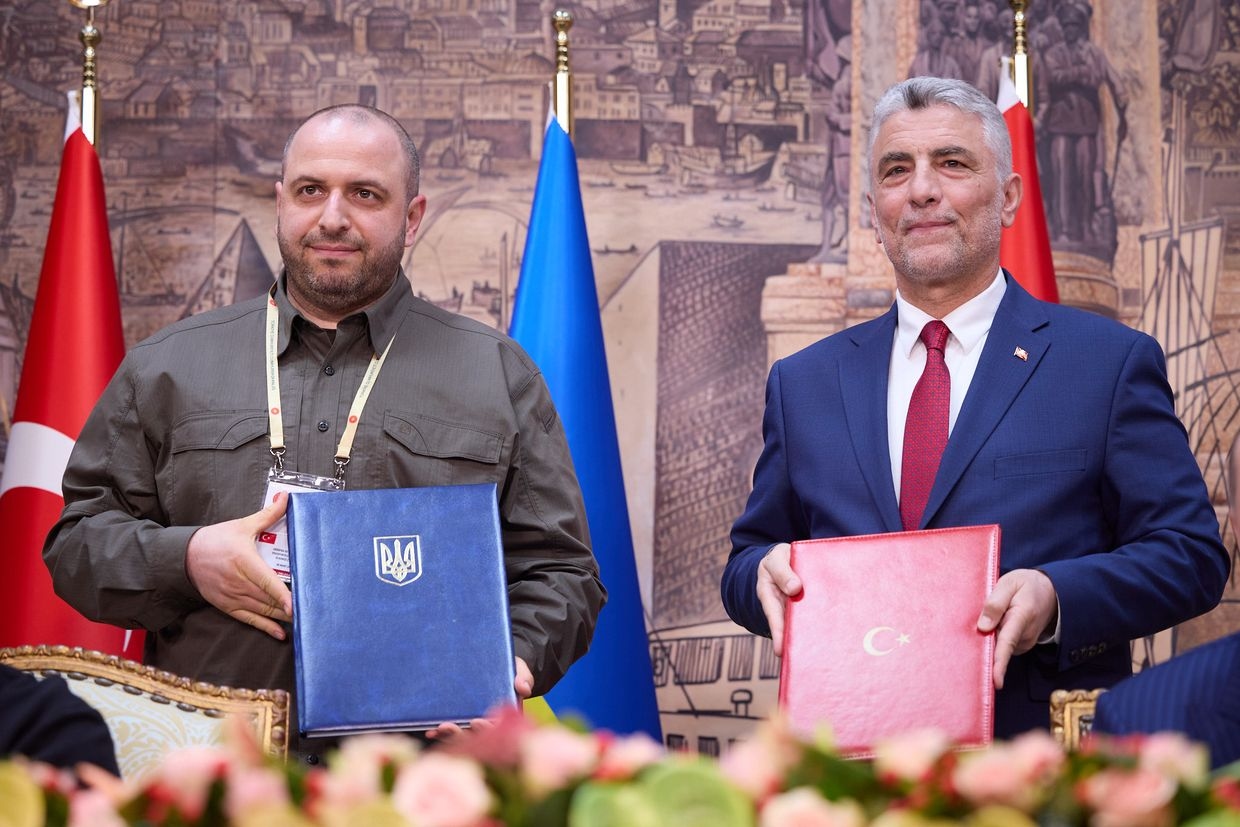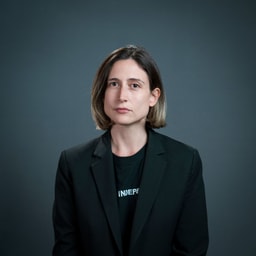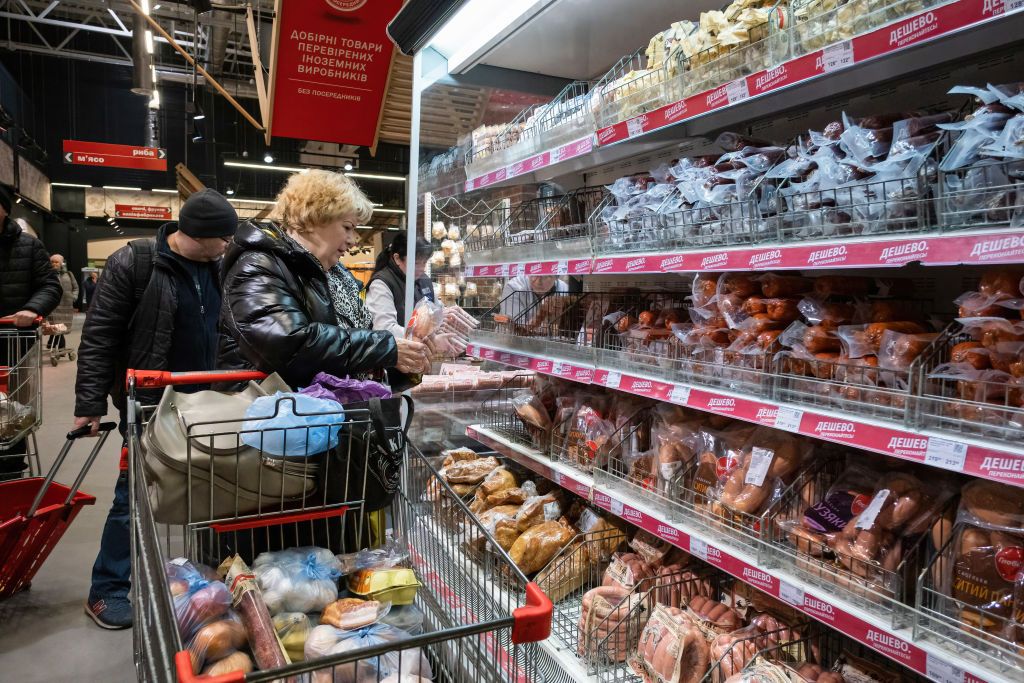Ukraine Business Roundup — March 12

The following is the March 12, 2024 edition of our Ukraine Business Roundup weekly newsletter. To get the biggest news in business and tech from Ukraine directly in your inbox, subscribe here.
After two years of no flights and a 20-hour train trip just to get from Kyiv to the nearest airport in Poland, Ukraine is making moves to reopen the country’s airports.
Ukraine’s airports have remained shut since day one of the full-scale invasion. Russia’s frequent missile and drone attacks across the country and the dark cloud of the 2014 MH17 tragedy have made the prospects of reopening air travel low.
Until now. Infrastructure Minister Oleksandr Kubrakov told RBC-Ukraine in an interview published on March 11 that Ukraine has officially started negotiations on the restoration of air travel with American and European safety regulators.
Kyiv is waiting for the first round of official feedback from regulators and is currently in talks with three Ukrainian companies that have confirmed they "want to fly," according to Kubrakov. One of those three companies is low-cost carrier Ryanair which has been saying since 2023 that it planned to return to Ukraine once the skies had reopened for commercial aviation.
“The Ukrainian side is already sharing its vision with regulators of how the market will operate under martial law, as well as its risk assessment,” Kubrakov told RBC.
Rumors have swirled about which airports will open and when. The government refuses to open up about it, but based on my conversations with various people in the know, the first airports to open up will be either Lviv’s airport or Kyiv’s Boryspil airport. Others have floated the idea of the Uzhhorod airport near the Slovakian border, but many have noted that it is too small and far from Kyiv to make sense.
How will Ukraine be able to manage keeping passengers and aircraft safe amid Russia’s ongoing war and continued aerial attacks? It will need a lot of air defense and help from other countries abroad with similar experiences, namely Israel.
From what I’ve heard, some think Ukraine will be able to pull it off. But by this summer? Others aren’t so sure…
Keep an eye out for an upcoming article from business reporter Dominic Culverwell on what exactly Ukraine needs to do to get its planes off the ground.

Frozen Russian assets
Ukraine could receive up to 3 billion euros ($3.3 billion) in funds from the profits of frozen Russian central bank assets as early as July, the Financial Times reported on March 12, citing unnamed officials.
Ukraine's Western partners and other allies froze around $300 billion in Russian assets at the start of the full-scale invasion in 2022.
Since then, debates over channeling these funds into Ukraine’s reconstruction have prevented allies from transferring the assets, but ongoing delays in further aid from the U.S. have created momentum behind finally moving on the issue.
The European Commission is reportedly preparing a plan that would involve seizing sanctions-related profits earned at the central securities depository Euroclear.
If Brussels gets member states’ approvals, Ukraine could get 2-3 billion euros ($2.2-3.3 billion) this year, depending on interest rates. The total profits extracted from Euroclear might amount to 20 billion euros by 2027, EU officials told the Financial Times.
Brussels could withdraw 97% of the net profit earned from frozen Russian assets in Euroclear accounts and transfer them to the EU budget, according to a draft of the commission’s internal proposal which was reviewed by the Financial Times.
The money will then be paid quarterly or twice a year and "can be used in favor of Ukraine in accordance with various agreements," the draft reads. It would be the first set of funds Ukraine receives from seized Russian assets.

Border update
Polish Prime Minister Donald Tusk failed to reach an agreement with Polish farmers to end protests against Ukrainian agricultural imports during a meeting on March 9, Polskie Radio reported.
Polish farmers have been holding protests across Poland and at the border with Ukraine in opposition to Ukrainian agricultural imports and the EU's Green Deal for a month.
Following the meeting with farmers, which reportedly lasted three hours, Tusk said that Warsaw would not close the border with Ukraine.
In late February, Tusk said that Warsaw had led talks with Kyiv on the possibility of temporarily closing the border for the trade of goods. Ukraine's deputy economy minister who takes part in talks with Poland on the border blockade and trade disputes, Taras Kachka, denied closing the border was on the table.
According to the farmers, Tusk criticized Polish officials responsible for agriculture and did not rule out dismissing some of them, Polskie Radio reported.
Polish Agriculture Deputy Minister Michal Kolodziejczak also met with farmers and presented "concrete proposals" to them, including financial assistance and concessions in EU policy.
Nevertheless, Tomasz Obrzanski, head of the independent self-governing trade union of individual farmers "Solidarity," announced that another big protest across Poland would take place on March 20.

Turkey-Ukraine trade
During a visit to Turkey last week, Ukraine’s Defense Minister Rustem Umerov and Turkish Trade Minister Omer Bolat signed a bilateral agreement establishing an electronic information exchange between the customs services of the two countries.
The exchange is meant to accelerate the movement of goods and vehicles moving to and from Ukraine and Turkey and to combat customs violations, the President’s Office said on its website.
The agreement was signed on the sidelines of President Volodymyr Zelensky’s first official visit to Istanbul since July 2023 when he brought home five commanding officers who had defended the Azovstal plant in Mariupol.
Zelensky met with his counterpart Recep Tayyip Erdogan and reportedly discussed Ukraine’s Peace Formula, security in the Black Sea, and the release of more Ukrainians from Russian captivity.
The president said that he also met with representatives of the local defense industry and that "several important documents were signed" at the level of Ukraine’s and Turkey’s defense ministries.
"We are ready to move as quickly as possible to complete the projects we have discussed,” the president said. "I am delighted with the talks with Turkish companies and businesses, therefore, I am confident that the results will be great, without a doubt."
Female leadership
Ukraine’s IT sector, just like every other country in the world, suffers from a paucity of women, especially in C-level positions.
The good news is that for over a decade, the number of women in Ukraine’s tech sector has been steadily rising. In 2011, women made up around 7% of employees in tech companies; by August 2023, 33% of the country’s 307,000 tech workers are women, according to Lviv IT cluster, a tech association.
Nonetheless, women currently hold less than a third of C-level positions in IT companies in Ukraine. Companies have to create more pathways for women to move up the ladder, said Nataliya Mykolska, executive director at Diia.City United, another tech association. Doing so will also encourage more women to enter the industry at lower levels, she said.
Seeing more women in high-level jobs in tech companies will also provide real-life examples and a source of inspiration for would-be female tech entrepreneurs, as women in the tech industry with whom I spoke have said.
In honor of International Women’s Day on March 8, we published an article profiling three women tech leaders in Ukraine. These three women have all stayed in Ukraine despite the war and opportunities abroad and are all invested in Ukraine’s future.
While they all feel that their country is moving in the right direction in terms of gender equality, they have no illusions about the work still left ahead.
Read about these three tech leaders here.
What else is happening
Russia summons Swiss ambassador over parliament's motions to funnel frozen Russian assets to Ukraine. Russia's Foreign Ministry summoned Swiss Ambassador to Moscow Krystyna Marty Lang to protest the Swiss parliament's decision to initiate the development of a mechanism for confiscating frozen Russian assets, the ministry said on March 12. The Swiss legislature voted on March 7 to approve three measures that would open the door for the future confiscation of Russian state assets frozen in Switzerland and redirect them to Ukraine's reconstruction. "In the case of the practical implementation of such plans by Bern, retaliatory measures by the Russian side will be inevitable," the Russian Foreign Ministry said on its official Telegram channel. The Swiss government estimated in December 2023 that it had frozen $8.8 billion in Russian state assets as part of its sanctions against Russia. The figure is much smaller than the total amount of money from Russian nationals and legal entities held by Swiss banks, which was estimated by the Swiss government to be around $48.2 billion.
Kyiv to receive $6.5 billion in EU transitional financing under Ukraine Facility. Ukraine and the EU signed an agreement on March 12 on transitional financing of 6 billion euros ($6.5 billion) for Kyiv as part of the bloc's long-term 50 billion euro ($55 billion) support plan, the Ukrainian Finance Ministry announced. The EU approved the four-year Ukraine Facility in February, allocating 33 billion euros ($36 billion) in loans and 17 billion euros ($18.6 billion) in grants. Based on the newly signed agreement, Ukraine's state budget should receive 4.5 billion euros ($4.9 billion) in transitional financing in March and the remaining 1.5 billion euros ($1.6 billion) in April "after the European Commission evaluates the completed indicators." "I am grateful to the European Union for its significant and timely financial support," Finance Minister Serhii Marchenko said while signing the document. "The transitional financing mechanism will cover the urgent budget needs until the final approval of the Ukraine plan for the Ukraine Facility," he added.
European Commission proposes draft framework for Ukraine's EU accession talks. The European Commission on March 12 proposed a draft framework for the forthcoming negotiations on the possible accession of Ukraine and Moldova to the EU. Ukraine's Deputy Prime Minister for European and Euro-Atlantic Integration, Olha Stefanishyna, said on March 11 that all four recommendations laid out by the European Commission had been fulfilled. The proposed frameworks detail the "principles governing the accession negotiations, (the) substance of the negotiations, and (the) negotiations procedure." The European Council will now begin internal debates on the proposal. Once it is approved, the president of the European Council will then publicly present the agreed-upon negotiation framework, which will mark the official beginning of accession talks.
Naftogaz says international arbitration decision on Gazprom's underpayment for transit should come in early 2026. Naftogaz, Ukraine’s state-owned oil and gas giant, expects a decision from international courts on a claim against Russia's Gazprom for incomplete payment for the transportation of natural gas in early 2026, Naftogaz CEO Oleksiy Chernyshov told Forbes Ukraine in an interview. “Today, our claim is $800 million. By the end of the year, we will increase it to almost $1.4 billion. We expect a decision at the beginning of 2026,” he said. According to Chernyshov, Gazprom is only paying two-thirds of the fixed amount stipulated in the contract, or about $800 million out of $1.2 billion per year. “At the same time, Naftogaz is contractually obligated to reserve the entire capacity of the Ukrainian gas transportation system. As a result, we are now receiving less than what we pay to the GTS Operator,” Chernyshov said.
European Parliament committee passes extension of tariff-free access to EU for Ukrainian food producers. The European Parliament's International Trade Committee passed a one-year extension of the liberalization of food exports from Ukraine to the EU on March 7, rejecting demands that additional measures be implemented to appease aggrieved farmers in the EU. At the same time, an "emergency brake" was added that would impose tariffs if the export of poultry, sugar, and eggs exceeded the level of exports in 2022 and 2023, the press release from the European Parliament said. The full parliament is set to vote on the extension next week, and a majority of lawmakers have already signaled that they are in favor of its passage.












